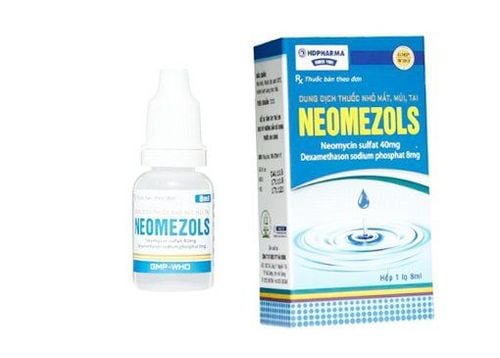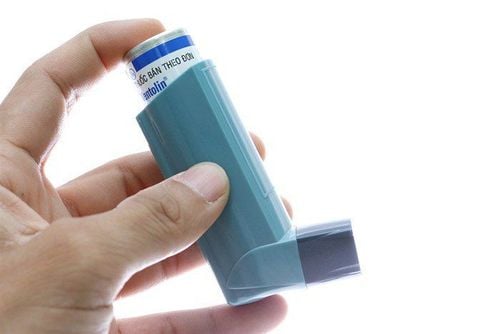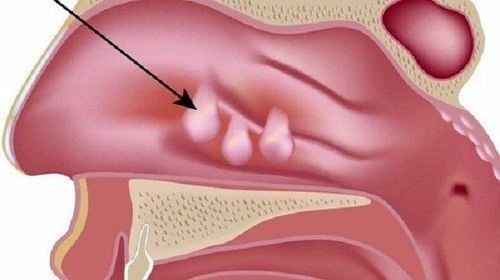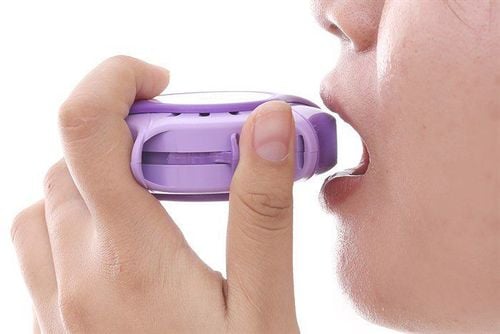This is an automatically translated article.
The article was professionally consulted by Specialist Doctor I Nguyen Xuan Tinh - Anesthesiologist - Resuscitation - Department of General Surgery - Vinmec Phu Quoc International General Hospital.
Nasal polyps are actually a benign tumor located in the nasal cavity, accompanied by symptoms such as stuffy nose, runny nose, shortness of breath, sinusitis, etc., which are easily confused with other nasal diseases.
1. What is nasal polyposis?
Nasal polyps are not too rare diseases, can appear in all subjects and have common symptoms, so it is difficult to detect. Nasal polyps are usually benign, teardrop-shaped tumors that appear in the lining of the nose or in the sinuses.The disease often has many similar symptoms with other nose diseases, so many people are subjectively confused. Usually, the disease is only discovered during a nasal endoscopy.
The symptoms of nasal polyps make patients often uncomfortable, tired, and physically weak. In the long term, when polyps grow larger or form clusters in the nasal cavity, it will lead to many complications affecting the patient's health.
2. In case of need to appoint nasal polyp surgery
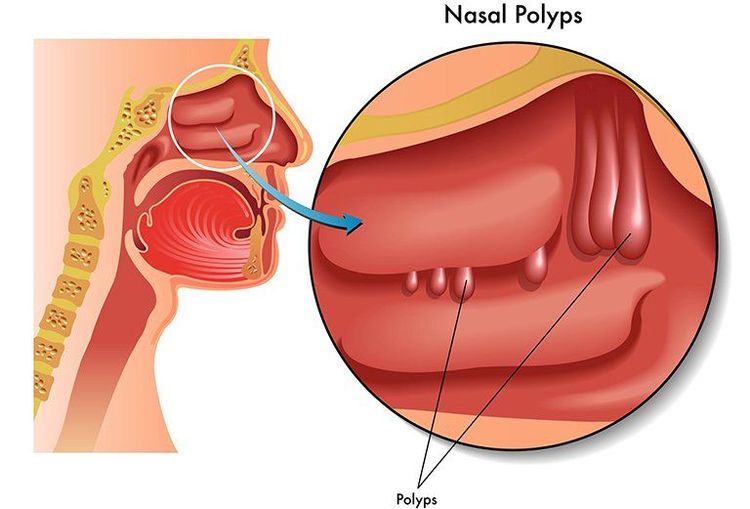
Severe nasal polyps grow in clusters, causing choking, drainage, sinusitis, tinnitus,... The patient has been treated with drugs. for a long time but not effective. Nasal polyps have been complicated, seriously affecting the patient's airway. Is nasal polyp surgery painful? Currently, endoscopic nasal polypectomy is usually very painless. Because this method creates a small surgical wound. As a result, the wound will be less painful and heal faster.
When performing endoscopic sinus surgery, patients need to understand and imagine that this surgical method is not only to remove nasal polyps but also to open the sinus cavity. Enlarging the sinus cavities will help open the airways. It also helps patients overcome daily discomforts. Endoscopic sinus surgery is more complicated when it requires the doctor to use a hard and thin tube. Inside the tube is attached a camera and light source for laparoscopic surgery.
3. Notes before surgery
Absolutely avoid eating, drinking or smoking within 6 hours before surgery. If the patient smokes, it must be stopped quickly because smokers have a high risk of complications after surgery. If your spouse smokes, you should also quit because the patient will breathe in secondhand smoke during the recovery period. If you brush your teeth, be careful not to swallow water. Remove makeup and wipe off nail polish and toenails before going to the hospital. If you have long hair, tie it back. Try to urinate before entering the operating room. Inform your doctor of any medications you are taking or are taking because some drugs affect blood clotting. 3.1 Perform laboratory tests - Pre-surgery Pre-surgery Laboratory tests: Blood count, Blood group, Fat set, Liver enzymes, Urine... Chest X-ray, CT-Scanner (Nose, sinus surgery, ear surgery. ..) Electrocardiogram Audiometry (Ear surgery) Nasal barotrauma (Nasal sinus surgery) Vocal cord activity (Vocal cord pathology surgery) Paraclinical indications (depending on the surgeon's request) ) The polyps causing nasal obstruction are the cause of patients seeking surgical treatment, which can make it difficult to ventilate with a mask. Therefore, clinical examination to detect the causes of obstruction and evaluate the airway in these patients is imperative.3.2 Pre-anesthesia visit with anesthesiologist You will have a pre-anesthesia visit with an anesthesiologist before each surgery. The anesthesiologist will explain and decide which anesthetic method is best for you. You may be assigned to do some more tests before surgery (if necessary at the request of the anesthesiologist). 3.3 Commitment to Acceptance Surgery, Procedure and Anesthesia Once you are fully informed about your surgery, you are required to sign a written consent allowing the doctor to perform the surgery as planned. Depending on the nature of the surgery, you may also be asked to sign a blood transfusion consent form. Children under 18 years of age must have the above consent and signed by a parent or guardian. 3.4 Attention to hygiene before surgery

Severe pain Difficulty urinating or painful urination Pain when inhaling or exhaling Pain at the incision Nausea vomiting (due to effects of anesthesia) Any other unusual symptoms.

Up to 80% - 90% of patients have significantly reduced symptoms such as nasal congestion, headache, facial pain and are very satisfied with the results of functional endoscopic sinus surgery. About 50% of patients still complain of postnasal drip, and polyps may recur a few years later. However, today with advances in medical technology, surgery to resolve lesions in the sinuses is relatively safe.
Vinmec International General Hospital is one of the hospitals that not only ensures professional quality with a team of leading medical doctors, equipped with the world's most modern Hybrid IGS730 operating room, outstanding with medical examination and treatment services. comprehensive and professional medical consultation and treatment; civilized, polite, safe and sterile medical examination and treatment space.
Doctor Nguyen Xuan Tinh has more than 18 years of experience studying and working in the field of Anesthesia - Resuscitation. Before working as an anesthesiologist at the Department of General Surgery - Vinmec Phu Quoc International General Hospital, Dr. Tinh worked for a long time at Cam Xuyen Tinh District General Hospital, Ha Tinh.
Please dial HOTLINE for more information or register for an appointment HERE. Download MyVinmec app to make appointments faster and to manage your bookings easily.





